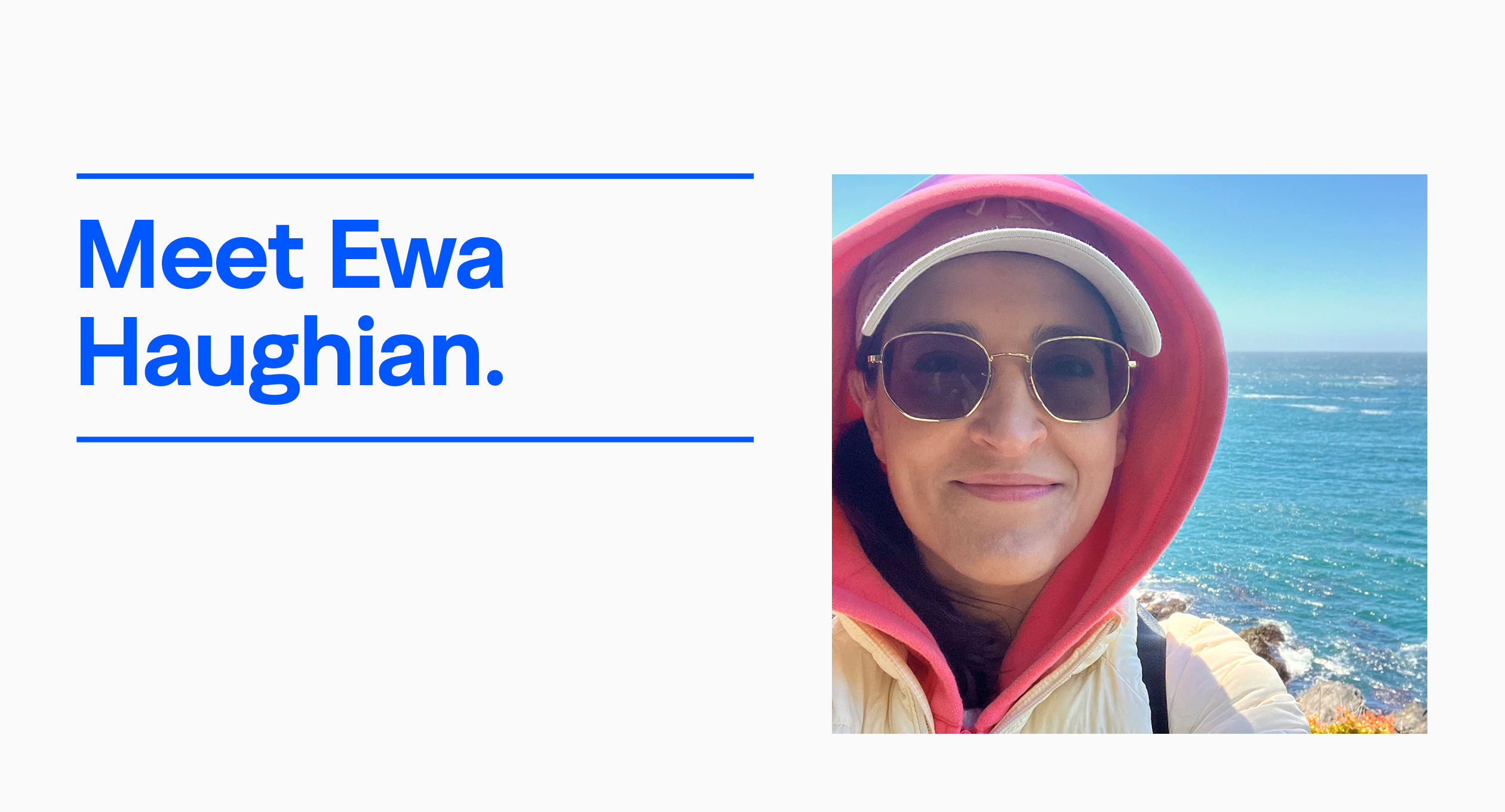October is National Disability Employment Awareness Month, a chance to increase awareness and advance equal opportunities for people with disabilities. In Canada, one in five or 3.2 million workers experience some form of disability.1 Last year, the unemployment rate among persons with disability remained higher (7.6%) compared to those without disability (4.6%).2
Each week throughout October, we’re profiling a member of DisAbility at Coast, our employee resource group (ERG). This volunteer employee-driven network raises awareness and acceptance by organizing workshops, hosting guest speakers and holding panel discussions.
1 From Statistics Canada. Labour force status of persons with and without disabilities aged 15 years and over, by age group and gender. March 2024.
2 From Statistics Canada. Labour market characteristics of persons with and without disabilities, 2023. June 2024.
Meet Ewa Haughian (She/Her/Hers), Digital User Experience Specialist and Co-chair of DisAbility at Coast.
Why did you join the ERG?
I’m a user experience specialist on the digital banking team celebrating my third year with Coast Capital. I initially joined the ERG to learn about and promote digital accessibility. My first project at Coast focused on helping potential or new members. It was of upmost importance to me that everyone was able to apply and successfully use our digital services. Since then, I’ve deepened my understanding about various types of disabilities; many of them invisible and listened to speakers with lived experiences of various disabilities. The more I learn, the more interested I’ve become, so my new role as co-chair of Disability at Coast ERG is a perfect fit.
What inspires your work on this topic?
The people I meet while working for the ERG are truly the kindest, most interesting people you’ll ever meet. They are my daily dose of fuel. But my inspiration runs deeper. Having grown up with family members who lived with invisible cognitive disabilities, I appreciate the challenges, the lack of understanding, the helplessness that caretakers and family of people with disabilities might experience. To break out of that cycle, I want to learn, share knowledge and coping strategies to help remove social stigma surrounding cognitive disabilities.
What misconceptions and beliefs do people have about disabilities (both in and outside of workplaces) that you’d like to dispel?
The misconception I would most like to dispel is that disability only happens to other people. All of us at some point will experience a form of disability—either temporary or permanent, illness or age-related. Building a society that’s kind, inclusive and knowledgeable is in all our interest. When we succeed at that, we will all be met with more understanding, experience more support, be offered more opportunities regardless of what life throws at us. That’s a world I would like to live in.
************************************************************
Coast Capital takes a person-first approach to disability. We understand that disability is complex. It reflects an interaction between the person and the society in which they live. Physical and non-physical workplace barriers can limit an individual’s full and equal participation.
A disability can occur at any time in a person’s life. Some people are born with a disability while others develop a disability later in life. It can be permanent, temporary, or episodic. Disability can steadily worsen, remain the same, or improve. It can be very mild to very severe.
Coast Capital’s definition of disability builds upon how disability is defined in the Accessible Canada Act. It demonstrates that disabilities are socially constructed. Disabilities emerge from the relationship between the individual and society. At Coast Capital, this definition reminds us that it is our responsibility to remove barriers for persons with disabilities because barriers are created and reinforced by the ways we think and act as a society.



